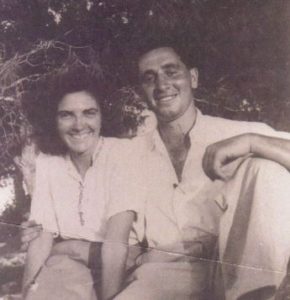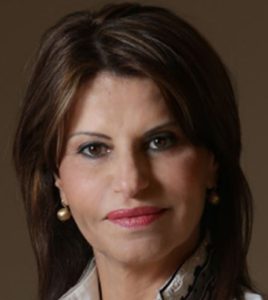Szymon Perski (1923-2016) was born in the shtetl of Vishnyeva (then part of Poland, now in Belarus) to a wealthy Russian-Jewish family. He was the great-great-grandson of the famed Rabbi Chaim Volozhin, and was greatly influenced by his own grandfather, Rabbi Zvi Meltzer. At the young age of 11, Perski’s family moved to Tel Aviv and Hebraized their last name to Peres. (Their entire extended family back in Vishnyeva would later perish in the Holocaust). After finishing his schooling, young Shimon went to live on a kibbutz working as a dairy farmer and shepherd before co-founding his own kibbutz. He was soon elected secretary of a Labor Zionist youth organization. From there, he joined the Mapai party, whose leader David Ben-Gurion took a personal interest in him. At 21, Peres was imprisoned for two weeks by the British for leading an “illegal” expedition into the Negev to scout a new place for Jewish settlement. In 1947, now married, Peres was appointed to the Haganah and put in charge of recruitment and weapons purchases. The following year, he took charge of Israel’s nascent navy. In the 50’s, while part of Israel’s delegation to the US, he studied at NYU and Harvard. At 29, he became the head of Israel’s Ministry of Defence – the youngest person to ever hold the position. He was praised for building strong military alliances with other countries (particularly France, who awarded him their highest distinction, the Legion of Honor), and securing large amounts of modern weapons that propelled Israel into a regional powerhouse. He also helped establish the crucial Dimona nuclear reactor. In 1959, Peres was elected to the Knesset. At one time or another, he served as Minister of Immigrant Absorption, Minister of Transportation, Minister of Defence, Foreign Minister, Minister of Finance, and Information Minister. In 1984, Peres was elected Israel’s prime minister, and in 2007, Israel’s president. Among his other major achievements are the 1976 Entebbe rescue operation (which he pushed through the Cabinet), the 1994 peace treaty with Jordan, and his Peres Center for Peace, which has trained over 250 Arab doctors and brought life-saving treatment to thousands of Arab children. Peres was awarded the Nobel Peace Prize in 1994 for his work with the Oslo Accords, was knighted by Queen Elizabeth in 2008, presented with the Presidential Medal of Freedom in 2012 by Barack Obama, and with the US Congressional Gold Medal in 2014. He was also the author of 11 books. Sadly, following a debilitating stroke, the last of Israel’s founding fathers passed away in his sleep early Wednesday. Dignitaries from around the world are flying in to pay their respects, including past and present heads of state of Germany, France, Canada, Australia, Mexico, and the US – many of whom Peres had guided and advised. President Obama has ordered flags in America to fly at half mast. Despite his age, Peres worked tirelessly until the very last days of his life. He had once said, “Optimists and pessimists die the same way. They just live differently. I prefer to live as an optimist.”
Words of the Week
It’s better to be controversial for the right reasons than to be popular for the wrong reasons.
– Shimon Peres



